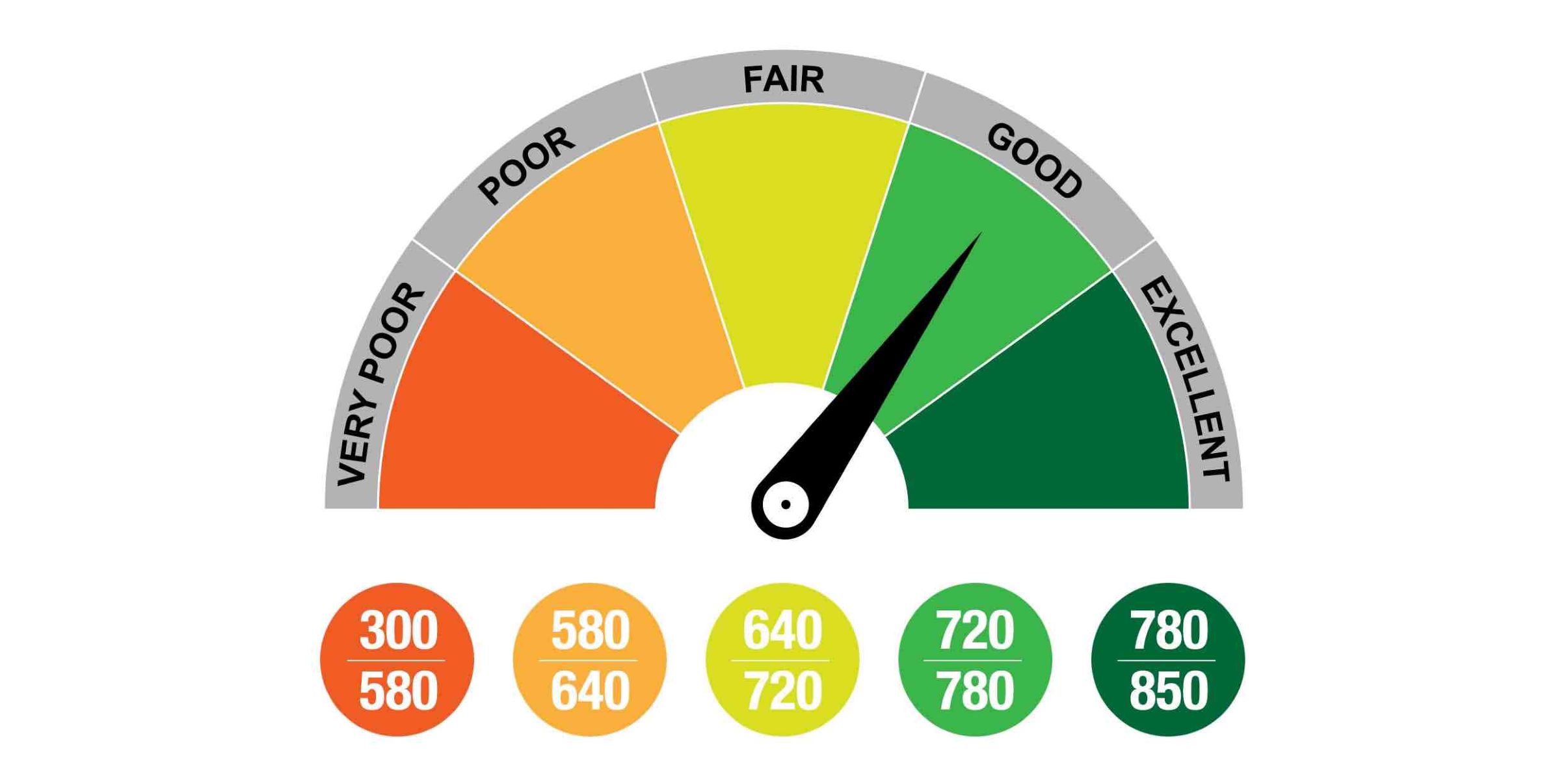

Finance
How Does An Insurance Agent Get Paid?
Published: November 14, 2023
Learn how insurance agents get paid and understand the financial side of the industry. Gain insight into the compensation structure and incentives.
(Many of the links in this article redirect to a specific reviewed product. Your purchase of these products through affiliate links helps to generate commission for LiveWell, at no extra cost. Learn more)
Table of Contents
Introduction
In the world of insurance, understanding how insurance agents get paid is crucial for both consumers and aspiring professionals in the industry. Insurance agents play a vital role in helping individuals and businesses protect themselves against potential risks by providing them with the right insurance policies.
Insurance agents serve as intermediaries between insurance companies and their clients. They are responsible for assessing their clients’ needs, recommending suitable insurance coverage, and facilitating the purchasing process. But how do insurance agents make money?
Insurance agents’ compensation structures can vary depending on the company they work for and the type of insurance policies they specialize in. In general, there are several common methods of compensation for insurance agents, including salary-based, commission-based, and fee-based structures.
In this article, we will explore these different compensation structures in detail, shedding light on how insurance agents earn their income and what factors can impact their earnings. Understanding how insurance agents get paid can provide valuable insights for both consumers seeking insurance and individuals considering a career in the insurance industry.
Salary-Based Compensation
Some insurance agents receive a fixed salary as their primary form of compensation. This means that regardless of their sales performance, they earn a consistent income. This type of compensation structure is most commonly found in large insurance agencies or brokerages.
When an insurance agent is on a salary-based compensation plan, their income is not directly tied to the policies they sell. Instead, they are typically given a base salary that is determined based on factors such as their experience, qualifications, and the size of the agency they work for.
Under this structure, insurance agents may have sales targets or performance goals they need to meet in order to receive additional incentives or bonuses. These targets could be based on metrics such as the number of policies sold, client retention rates, or overall agency performance.
The advantage of salary-based compensation is that it provides a stable income for insurance agents, regardless of fluctuations in sales. It allows them to focus on providing excellent service to their clients without the constant pressure of meeting sales quotas. However, the downside is that the earning potential may be limited compared to commission-based compensation.
It’s important to note that salary-based compensation is more common for entry-level insurance agents or those who are just starting their careers in the industry. As agents gain experience and build a client base, they may transition to commission-based or hybrid compensation structures to maximize their earning potential.
Commission-Based Compensation
Commission-based compensation is one of the most common methods of payment for insurance agents. Under this structure, agents earn a percentage of the premium paid by the client for each policy sold. The commission rate can vary based on factors such as the type of insurance, the insurance company’s policies, and the agent’s level of experience.
Insurance agents who work on a commission basis are typically responsible for prospecting and generating their own leads. They invest time and resources into building relationships with potential clients, understanding their insurance needs, and presenting suitable policies.
When a sale is made, the agent receives a commission based on a predetermined percentage of the premium. The commission can be paid upfront, as a one-time payment, or it can be spread out over the duration of the policy, depending on the insurance company’s policies.
Commission-based compensation provides insurance agents with the potential to earn significant income, as their earnings are directly tied to the number and value of the policies they sell. This structure rewards agents who excel at prospecting, sales, and building long-term client relationships.
However, it’s important to note that commission-based compensation can also be accompanied by fluctuating income. Insurance agents may experience periods of high earnings when they close multiple sales, but they may also experience slower periods with fewer sales and lower income.
Some insurance companies may offer different commission rates for different types of policies. For example, selling a life insurance policy may earn a higher commission compared to selling an auto insurance policy. This is because life insurance policies generally have higher premiums and longer policy terms.
Overall, commission-based compensation can provide insurance agents with greater earning potential compared to salary-based structures. However, it requires agents to be proactive, motivated, and skilled in sales and relationship-building to maximize their income.
Base Salary Plus Commission
Some insurance agents enjoy the best of both worlds with a compensation structure that combines a base salary and commission. This hybrid model provides agents with a stable income through a base salary while also providing opportunities to earn additional income through commissions based on their sales performance.
Under the base salary plus commission structure, insurance agents receive a fixed base salary that serves as their regular income. This base salary is often determined based on factors such as the agent’s experience, qualifications, and the size and profitability of the agency or insurance company.
In addition to the base salary, insurance agents earn commissions on the policies they sell. The commission rates may vary depending on the product type and the insurance company’s policies. This means that agents have the potential to increase their income by selling more policies and achieving higher sales targets.
The base salary component provides agents with a stable and predictable income, which can be especially beneficial during slow sales periods. It offers some level of financial security and allows agents to focus on providing excellent customer service and building long-term relationships with their clients.
On the other hand, the commission component incentivizes agents to excel in their sales efforts and generate more business. The more policies they sell, the higher their commission earnings. This structure rewards hard work, sales expertise, and the ability to meet or exceed sales targets.
Base salary plus commission structures can vary depending on the insurance company and the agent’s level of experience. Some companies may have certain thresholds or minimum sales requirements that need to be met in order to qualify for additional commission-based incentives.
Overall, the base salary plus commission structure provides a balanced approach to compensation for insurance agents. It combines the stability of a regular income with the opportunity for increased earnings based on sales performance, motivating agents to strive for success while still providing a safety net during slower periods.
Bonuses and Incentives
In addition to the base salary and commissions, insurance agents may also be eligible for bonuses and incentives based on their performance. These bonuses and incentives serve as additional rewards to motivate and recognize agents for their outstanding sales achievements and contribution to the company’s growth.
Bonuses can be offered as a one-time payment or as a recurring reward based on certain criteria. They can be based on individual performance, team performance, or overall agency performance. For example, an insurance agent may receive a bonus for achieving a certain number of sales within a given time period or for reaching a specific revenue milestone.
Incentives can come in various forms, such as cash bonuses, travel opportunities, gift cards, or other valuable rewards. Some insurance companies even offer contests or competitions that provide agents with the chance to win additional prizes based on their sales performance.
These bonuses and incentives can serve as powerful motivators for insurance agents. They not only provide tangible rewards but also create a sense of healthy competition and recognition within the agency or company.
Bonuses and incentives can vary greatly depending on the insurance company, the agent’s level of experience, and the specific sales goals or targets set by the company. Some insurance companies may have structured incentive programs in place, while others may offer more discretionary rewards based on individual performance.
It’s important for insurance agents to familiarize themselves with the specific bonus and incentive structures offered by their company. By understanding the criteria and expectations, agents can set clear goals and work towards achieving them, increasing their chances of earning these additional rewards.
Ultimately, bonuses and incentives serve as tools to motivate and reward insurance agents for their hard work and dedication. They not only drive sales results but also foster a positive and competitive environment within the insurance industry.
Renewal Commissions
Renewal commissions are another form of compensation for insurance agents that can provide a steady stream of income over time. When clients renew their insurance policies, agents may receive a renewal commission based on a percentage of the premium paid by the client.
Renewal commissions are an incentive for insurance agents to provide excellent customer service and maintain strong relationships with their clients. By ensuring customer satisfaction and meeting their evolving insurance needs, agents can increase the likelihood of policy renewals.
Renewal commissions are typically paid out on a recurring basis as long as the policy remains active and the client continues to renew it. This can provide agents with a reliable source of income, especially if they have built a substantial client base over time.
The renewal commission rate may vary based on factors such as the insurance company’s policies, the type of policy, and the agent’s level of experience. Generally, the renewal commission is lower than the initial commission received for selling the policy initially.
It’s important for insurance agents to review their commission agreements and understand how renewal commissions are structured. Some companies may have specific requirements, such as a minimum policy retention rate or a minimum number of policies to qualify for renewal commissions.
Renewal commissions can be an attractive aspect of compensation for insurance agents, as they provide an opportunity for passive income. By consistently delivering quality service and maintaining strong client relationships, agents can benefit from ongoing commission payments for policy renewals.
However, it’s important to note that renewal commissions are not guaranteed. If clients choose not to renew their policies or switch to another insurance provider, agents may not receive the renewal commission for those policies.
Overall, renewal commissions serve as a way for insurance agents to continue earning income beyond the initial sale. They reflect the ongoing relationship between the agent and the client and reward agents for their ability to provide value and meet the changing insurance needs of their clients over time.
Overrides and Contingent Commissions
In addition to the base salary, commission, and renewal commissions, some insurance agents may have the opportunity to earn overrides and contingent commissions. These forms of compensation provide agents with additional income based on team or agency performance.
Overrides are commission earnings that insurance agents receive based on the sales performance of the agents they manage or the size of their agency. Agents who hold leadership or managerial roles may be eligible for overrides, which serve as an incentive for them to foster a successful and productive team.
The override commission is usually a percentage of the total commissions earned by the agents under their supervision. The exact percentage can vary depending on the insurance company’s policies and the level of agency performance.
Contingent commissions, on the other hand, are additional payments that insurance agents may receive based on their agency’s overall performance, profitability, or growth. These commissions are not guaranteed and are often contingent on meeting specific targets or performance metrics set by the insurance company.
Contingent commissions are typically paid out on top of the agents’ regular commissions and provide an extra incentive for agents to contribute to their agency’s success. These payments can vary in frequency and amount, depending on the insurance company’s policies and the performance of the agency as a whole.
Overrides and contingent commissions can be highly motivating for insurance agents, as they provide opportunities to earn additional income based on the collective efforts of the team or agency. They reward not only individual sales performance but also the ability to lead, mentor, and contribute to the overall success of the agency.
It’s important for insurance agents who are eligible for overrides or contingent commissions to understand the specific criteria and targets set by their insurance company. This knowledge can help agents set goals and implement strategies to maximize their potential for earning these additional forms of compensation.
Overrides and contingent commissions are additional ways for insurance agents to increase their income and be rewarded for their leadership skills, teamwork, and contributions to the success of their agency. They provide a pathway for agents to grow their careers and potentially earn even higher levels of compensation.
Fee-Based Compensation
In addition to traditional commission-based or salary-based compensation models, some insurance agents may also receive fee-based compensation. This form of compensation involves charging clients a fee for specific services provided, in addition to any commissions earned from insurance policies sold.
Fee-based compensation can offer insurance agents an alternative revenue stream and can be particularly common in certain types of insurance, such as financial planning or specialized niche markets. Agents who offer additional services beyond insurance, such as risk management or investment advice, may charge fees for their expertise and guidance.
The fees charged by insurance agents can vary depending on the complexity of the service provided and the market norms. These fees may be a fixed amount or calculated as a percentage of the total assets or insurance coverage being managed.
Fee-based compensation can offer several benefits to insurance agents. It allows agents to be more transparent about their earnings and to diversify their income sources. It also aligns their interests with their clients, as they are compensated based on the value they provide rather than solely on the sale of insurance policies.
However, it’s important to note that fee-based compensation may not be suitable or feasible for all insurance agents. It requires specialized expertise and additional qualifications to provide certain financial advisory or risk management services.
Furthermore, regulations and licensing requirements may vary for insurance agents charging fees for financial services. Agents should ensure they are compliant with any licensing or regulatory obligations in their jurisdiction before offering fee-based services.
Fee-based compensation adds another layer of value and flexibility for insurance agents. It allows them to expand their services beyond insurance policies and offer comprehensive solutions to their clients’ financial and risk management needs. By charging fees for their expertise and advice, agents can position themselves as trusted advisors and provide a higher level of customized service.
Other Forms of Compensation
Aside from salary, commissions, bonuses, overrides, contingent commissions, and fee-based compensation, there are other forms of compensation that insurance agents may receive depending on their insurance company and individual agreements.
One common form of additional compensation is profit-sharing. Some insurance companies offer profit-sharing plans where agents receive a percentage share of the company’s profits based on their individual performance or the performance of their team or agency. Profit-sharing serves as an incentive for agents to contribute to the overall success and growth of the company.
Stock options or equity participation programs might also be available to insurance agents. Companies can offer their agents the opportunity to own shares or stock options, allowing them to benefit from the company’s financial success over time. This form of compensation aligns the agent’s interests with the company’s long-term growth.
Scholarships, educational grants, or reimbursement programs are additional forms of compensation that insurance agents may receive. These programs provide financial support for agents to further their education, obtain professional certifications, or attend industry conferences and seminars. By investing in their agents’ development, insurance companies aim to enhance the agent’s skills and expertise.
Some companies may offer rewards programs or recognition events to celebrate and acknowledge the achievements of their agents. These programs can include incentives like luxury trips, awards, or exclusive membership to clubs or organizations. These rewards not only provide agents with unique experiences but also serve as a way for companies to motivate and retain top-performing agents.
Additionally, insurance companies may offer benefits packages that include health insurance, retirement plans, and other employee benefits. These benefits contribute to overall compensation and can enhance the financial well-being of insurance agents.
It’s important for insurance agents to thoroughly review their compensation agreements and fully understand the different forms of compensation available to them. By taking advantage of the various compensation programs and benefits offered by their company, agents can maximize their total compensation and create a rewarding career in the insurance industry.
Conclusion
Understanding how insurance agents get paid is crucial for both consumers looking to purchase insurance and individuals considering a career in the insurance industry. Insurance agents’ compensation can vary widely based on factors such as the company they work for, the type of insurance they handle, and their level of experience.
Salary-based compensation provides agents with a stable income, while commission-based models offer the potential for higher earnings based on sales performance. Base salary plus commission structures strike a balance between stability and earning potential.
Bonuses and incentives further motivate agents by recognizing their outstanding sales achievements. Renewal commissions offer agents a reliable income stream as clients renew their insurance policies. Overrides and contingent commissions reward agents for managing teams and contributing to agency success.
Fee-based compensation allows agents to charge fees for additional services beyond insurance, increasing their income potential and providing a more comprehensive offering to clients.
Other forms of compensation, such as profit-sharing, stock options, educational grants, rewards programs, and benefits packages, further enhance the overall compensation package for insurance agents.
Aspiring insurance professionals should carefully review the compensation structures offered by different insurance companies to find the best fit for their career aspirations and financial goals. Consumers can also benefit from understanding how agents are compensated to ensure transparency and make informed decisions when purchasing insurance.
In conclusion, the compensation methods for insurance agents reflect the complex and dynamic nature of the insurance industry. By comprehending the various compensation structures and their implications, both agents and clients can navigate the insurance landscape with confidence and achieve their respective goals.














